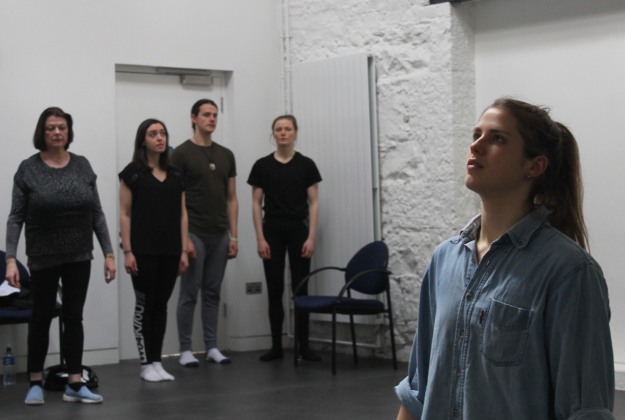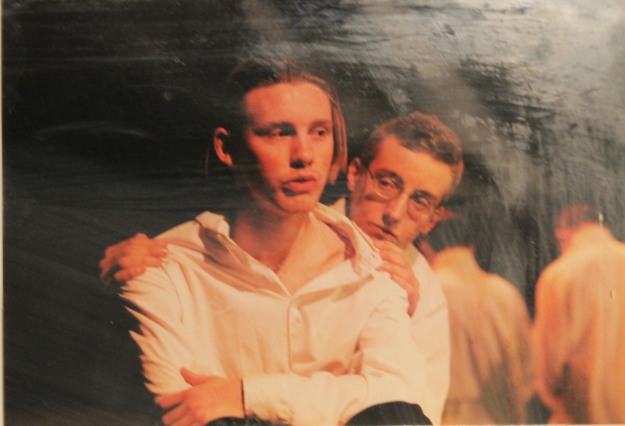 CHEKHOV TRAINING AND PERFORMANCE IRELAND SUMMER SCHOOL
CHEKHOV TRAINING AND PERFORMANCE IRELAND SUMMER SCHOOL
“A little piece of Art”
Finding a sense of form in the character, the piece or the play through the Michael Chekhov Technique.
NUIG Galway
August 16-19th 10 – 5. Tutor Max Hafler
For Actors, Students, and Directors .
Michael Chekhov said that everything you did onstage, every exercise, every improvisation, every scene, every play needed a ‘feeling of Form’ and a “feeling of Entirety”. Each piece had to be “a little piece of Art”. We are going to explore these two fundamental planks of Chekhov Technique to enable us to create more believable and focussed characters and performances using the psycho-physical technique which through the imagination and the body takes us to new realms.
Getting the whole understanding of form in our bodies is crucial. How do you start a scene? What are the dynamics? And how does the scene end? And what happens in between? Working with tableaux, gesture and transformation, we will work with a yet to be decided text. This technique will give a strong grid on which to work, yet at the same time give you as a performer/director an immense freedom. It is both completely practical and helps the performer to express the invisible.
It is going to be exciting.
some thoughts
Of course these ideas of Form and Entirety are not new in consideration of art but they are too often dismissed or ignored by practitioners as outmoded or outdated, that they make smug or complacent art, as if life could be tied in those kind of parcels. I would question whether theatre has the slightest responsibility to imitate life in quite that kind of way, even if this was true.
Form and Entirety [or wholeness] are related of course but are not quite the same thing. I would say that Feeling of Form is something the performer practises that becomes an inate performance skill whereas a Feeling of Wholeness is a state that is discovered both as a character and also through the experience of the whole play.
We have to accept that Form and Wholeness are woven into our lives. The two things we know for sure are that we are born and we die; a beginning and an end. Because we understand this on a fundamental visceral level, it is not surprising to me that we often look for this quality in art. The end we seek in our plays and films is not necessarily a comfortable easy end; nor is it always an attempt to just have our own values expressed and validated. Remember, if you look at a play or film with an ending which appears inconclusive, the creators have decided that ending for a reason. It is still an ending.
In my real life experience, endings are beginnings with new challenges and obstacles and pleasures. At least they are changes – the start of a new consideration, some new way of being. The end is a stopping and pausing point. however, in a work of art it offers a deep satisfaction because it is a pinnacle, a place for the characters to rest and take stock before they move on. In a fictional narrative, it leaves us with a feeling, a question and a resolution all rolled into one – if it is powerful that is.
So, in addition to needing a ‘Feeling of Entirety’ for the whole piece of art, we have a feeling of form for the character. What about the beginning, the start of the character’s journey? What are the energies and desires he brings into the space and how does he seek them? Chekhov always talks about How and what being the most fundamental questions which lead to the answer of Why someone does something.
When working on entrances and exits in another workshop, we observed that the moment you entered was one of your moments of ultimate power. The audience are intrigued by a new energy, by a feeling that the arrival of this person is going to change things, alter the dynamic. Finding a starting point through psycho-physical exercises is a nuanced and exciting exploration. Finding the end point gives you somewhere to go.
booking details
If you are interested to book for this course , please contact chekhovtrainperformireland@gmail.com. the cost of the course is €180 for tuition only

